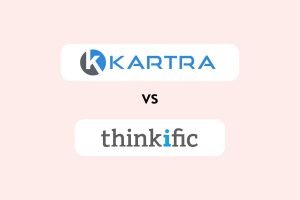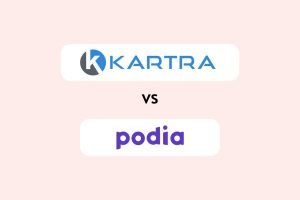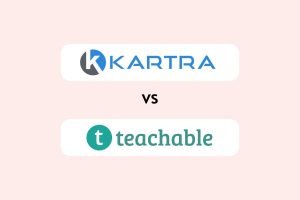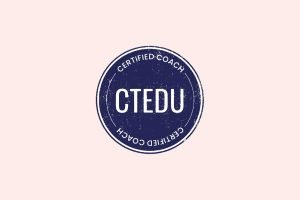Last updated on August 5, 2023
The life coaching industry is facing rapid expansion, so distinguishing yourself through specialized certifications can be the right move. However, with the abundance of information surrounding life coaching certification, making a decision can become quite challenging.
Individuals interested in choosing a coach certification often encounter confusing information and conflicting opinions. But rest assured, there is a solution!
Today, we’ll break down five types of life coach certifications. With a thorough overview of the distinct routes, you’ll be able to choose the right path to becoming a certified life coach.
Table of Contents
What Does a Life Coach Do?
Life coaches help individuals enhance their lives through guidance, goal-setting, motivation, and support. They can engage with clients through one-on-one sessions, group sessions, programs, and courses, all of which can take place online or in person.
Life coaches can niche in a specific field, such as career, relationships, health, manifestation, spirituality, and other specialties.
Some of the responsibilities of a life coach are:
- Defining clients’ goals
- Creating strategies for achieving set goals
- Holding clients accountable
- Encouraging and motivating clients to accomplish their goals
- Providing clients with suitable resources
Do You Need a Certification to Become a Life Coach?
The coaching industry is not regulated, meaning that you don’t need any formal diploma or certification to offer your life coaching services. The lack of regulations allows anyone to start a life coaching business—which is overwhelming the market.
The value of a life coaching certification is that it validates your expertise, equips you with the necessary skills, and helps you build trust with potential clients. With 81.3% of coaches possessing a certification, it becomes challenging to distinguish oneself in the field without having one.
Does Accreditation Matter in a Life Coach Certification Program?
Certification doesn’t necessarily have to be accredited. However, a program’s accreditation indicates that the training program has undergone a rigorous review process set by the accrediting institution. That’s why accredited certifications hold greater recognition.
The International Coaching Federation (ICF) is considered the “gold standard” in the coaching industry, so its credentials are highly esteemed in the field of coaching. A certification from ICF-accredited programs, such as Coach Training Alliance, can enhance your credibility.

It’s important to note that ICF doesn’t provide its own training programs, but they accredit coach training programs that meet its standards. Therefore, you can fulfill the requirements for ICF certification through an ICF-accredited program, and submit your application on the ICF website.
While ICF remains the leading accrediting body, it’s important to note that other organizations, such as the Continuing Professional Development (CPD) Standards Agency, also carry weight and recognition. Well-known certification programs like Transformation Academy hold this accreditation.
Within some niches, you may encounter additional accrediting bodies, particularly in the health and wellness field.
5 Types of Life Coach Certifications
To make things simple, we’ve categorized the various life coach certifications into five groups. Let’s dive into the distinct types of life coaching certifications to see which might align with your experience and the goals you have for your coaching practice.
1. Certified Professional Coach
The Certified Professional Coach (CPC) certificate provides you with the necessary foundation in coaching practices, methodologies, and approaches for working with clients in professional settings, such as corporate coaching, executive coaching, or leadership coaching. There are no prerequisites for this credential.
You can obtain this certification through the Institute for Professional Excellence in Coaching (iPEC). The online program lasts around 10-12 months and the robust curriculum delivers diverse resources for embarking on a professional coaching career.
After completing the CPC certification program, you can further your coaching education with a specialization in a field of your interest.
2. Life Coach Certification
The Life Coach Certification (LCC) is suited for individuals who aspire to work as life coaches and help clients navigate personal goals, relationships, well-being, and overall life satisfaction.
Unlike the CPC certificate, which emphasizes professional coaching skills and techniques, the LCC focuses more broadly on life coaching, encompassing personal growth, well-being, relationships, and other aspects of clients’ lives.
If you want this certification, with Certified Life Coach Institute’s intensive course, you can earn it in just 3 days.
3. Associate Certified Coach
ICF provides three levels of certification, and the first one is the Associate Certified Coach (ACC) certification. Unlike the first two types of certification, this certification is more demanding.
ACC training equips you with the essential tools necessary to become a qualified coach. To attain the Associate Certified Coach credential, you need to fulfill several requirements, including a minimum of 60 hours of professional training, 100 hours of coaching experience, and 10 hours of mentor coaching.
Once you complete the program, you can apply for an ACC certificate through the International Coach Federation. The application process requires submitting a recording of a coaching session and successfully passing an online test.
4. Professional Certified Coach
The Professional Certified Coach (PCC) certification program is the second ICF credential path. With this certification, you can obtain proof of a higher level of proficiency in life coaching practices.
This rigorous training experience demands at least 125 hours of ICF-approved training, over 500 hours of client coaching experience, and 10 hours of mentor coaching. You can expect to invest 1-2 years to meet all the requirements.
5. Master Coaching Certification Program
Comparable to a graduate program in the life coaching realm, only the most dedicated coaches obtain the highest level of ICF credentials, the Master Coaching Certification.
A Master Certified Coach (MCC) credential requires a significant investment of both time and money. However, it serves as a tangible testament to your expertise and mastery and a compelling selling point for clients.

The requirements for this certification are even more exhaustive, as you need to complete over 200 hours of training, have more than 2,500 hours of coaching experience, and 10 hours of mentor coaching to apply.
Our recommendation for meeting the ICF’s certification requirements, whether that’s for ACC, PCC, or MCC level, are the certifications offered by Coach Training Alliance, iPEC, and Inspired Spirit Coaching Academy (ISCA). These reputable programs will enable you to work with experienced mentors and engage in interactive training.
If you want to combine both ICF-required training and niche training, our top picks are iNLP Center for neuro-linguistic programming (NLP), ADHD Coach Training Center (iACTcenter) for ADHD life coaching, and Relationship Coaching Institute (RCI) for relationship coaching.
FAQs
- How much does a life coach make?
Depending on their level of expertise, experience, location, and reputation, the annual salary of a life coach ranges between $62,500 and $245,000.
- How much does a life coach certification cost?
ICF-accredited certifications are on the pricier side as they include mentor training, coaching hours, peer coaching, and more. They typically cost between a couple of hundred dollars and several thousand dollars. Certifications that aren’t ICF accredited can be more affordable, and their price can be as little as $200 or less.
- What is the most recognized life coaching certification?
Choosing the most recognized coaching certification presents a challenge, given the innumerable certification options available. Therefore, the solution is to shift the focus toward accreditation rather than the certification itself. Renowned accrediting bodies like ICF and CPD can lend you credibility without overwhelming yourself with trying to decipher which program has the greatest name recognition.
Conclusion
If you aspire to progress through various levels of coaching proficiency, we hope that this compilation of life coaching certification types can serve as a valuable guide for your professional development. However, it’s important to remember that types of certification shouldn’t be the sole determining factor when selecting a training program.
If you have a clear focus on a particular specialty, a more prudent decision would be to pursue comprehensive knowledge in that specific field. Transformation Academy has the most diverse range of niche certifications, so you can explore their offerings to discover potential niches that align with your interests. For those who seek ICF accreditation, our top recommendation is Coaching Training Alliance.
Take the Coach Certification Quiz
Need help choosing a coach training and certification program? We created this short quiz to help you find the best program for you.
Take the quizThe Life Coach Magazine staff is your team for high-quality content on topics from personal development, to coaching tips, to how to grow your coaching business.

















Be First to Comment